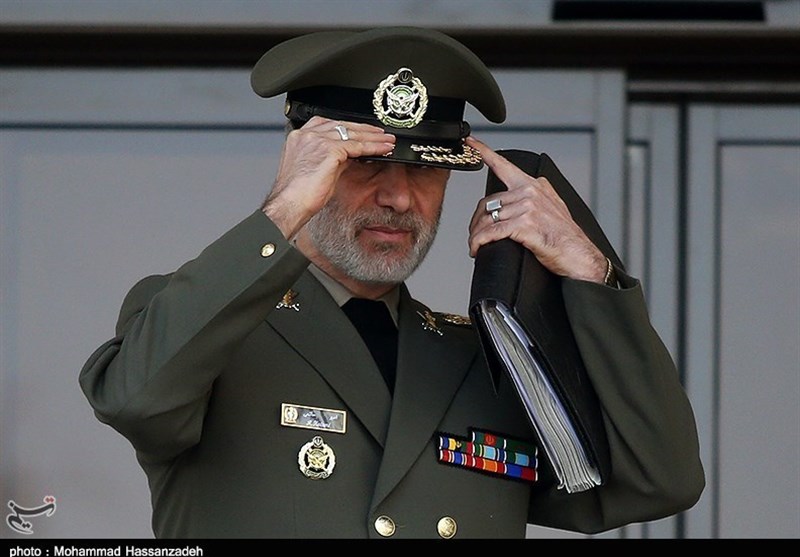Iran’s Defense Minister Says Crushing Response Awaits Any Aggressor


Iranian Defense Minister Brigadier General Amir Hatami cautioned the enemies of the dire consequences of aggression against the Islamic Republic, recommending that they treat Iran with respect.
In comments made during a visit to a military industrial complex on Wednesday, General Hatami said the Iranian nation has proved that it is not aggressive, but would harshly punish aggressors if it comes under attack.
Highlighting the Iranian Armed Forces’ combat preparedness, great operational capabilities and advanced equipment, the minister warned of the “crushing response” that invaders will receive from Iran.
In comments in May 2017, Leader of the Islamic Revolution Ayatollah Seyed Ali Khamenei cautioned the adversaries about the “harsh reaction” they will have to suffer in case of any offense against Iran, stressing that the era of hit and run is over.
“The enemies should know that if they come up with the idea of an act of aggression against Iran, they will face a harsh reaction,” Ayatollah Khamenei said, reminding the enemies that they might begin a war against Iran, but the decision to end it would not be theirs.







